How to get first occurrence of last changed value of "sval" column? for id = 22, 71 is the last changed value so wants to fetch first occurence of 71. same way for id = 25, 74 is the last changed value so wants to fetch first occurence of 74.
https://dbfiddle.uk/?rdbms=mariadb_10.6&fiddle=c980809154d41f2accc9f14d569b48f1
data:
in above picture i wanted to fetch highlighted row.
try:
with LastValue as (
select t.sval
from test t
order by t.date desc
limit 1
)
select t.*
from test t
where t.sval = (select sval from LastValue)
and t.date > (select max(tt.date) from test tt where tt.sval <> (select sval from LastValue))
order by t.date asc
limit 1;
actually the problem statement is i dont want the group by sval first occurence, instead i want the whatever last changed sval so our example after highlighted rows should be returns for ids (22,25).
